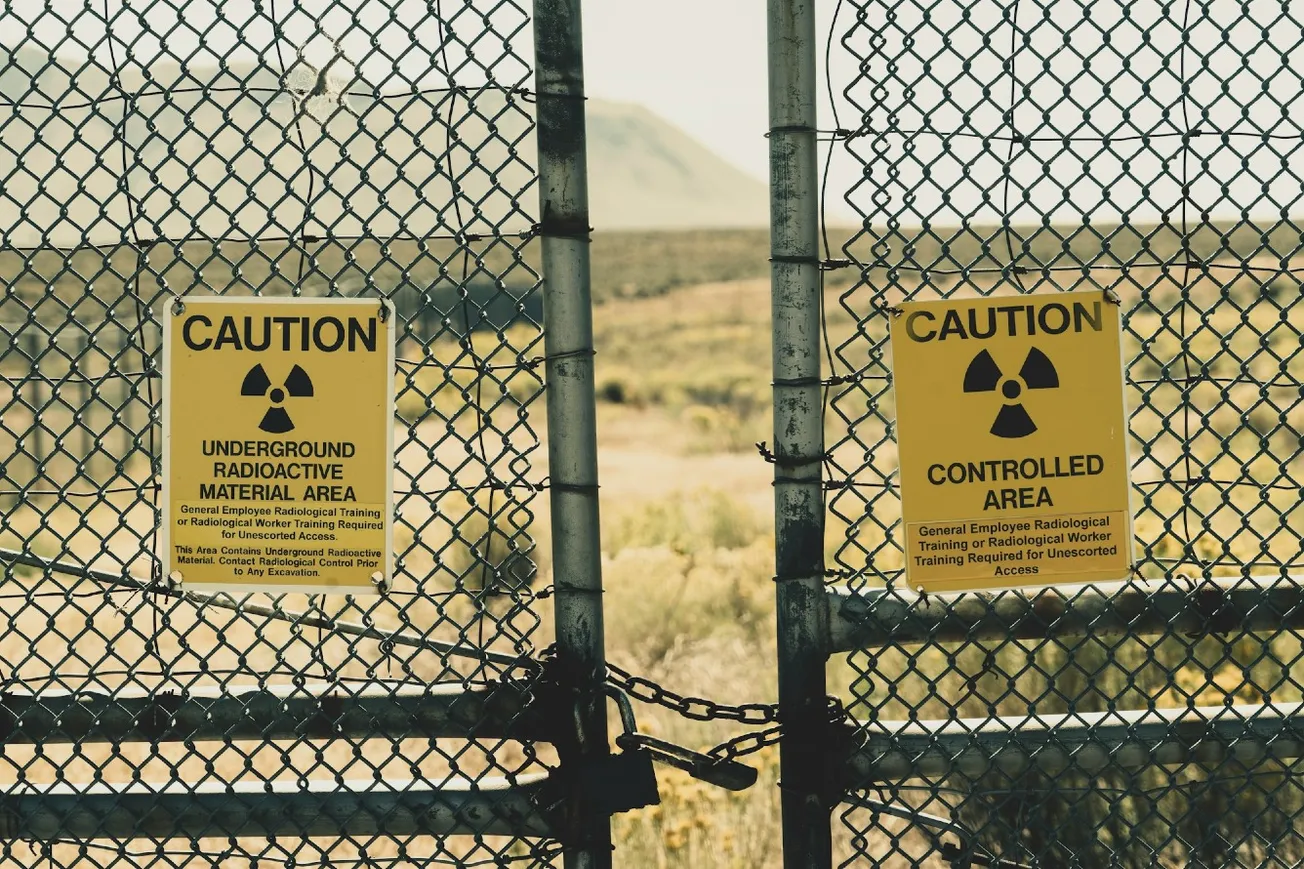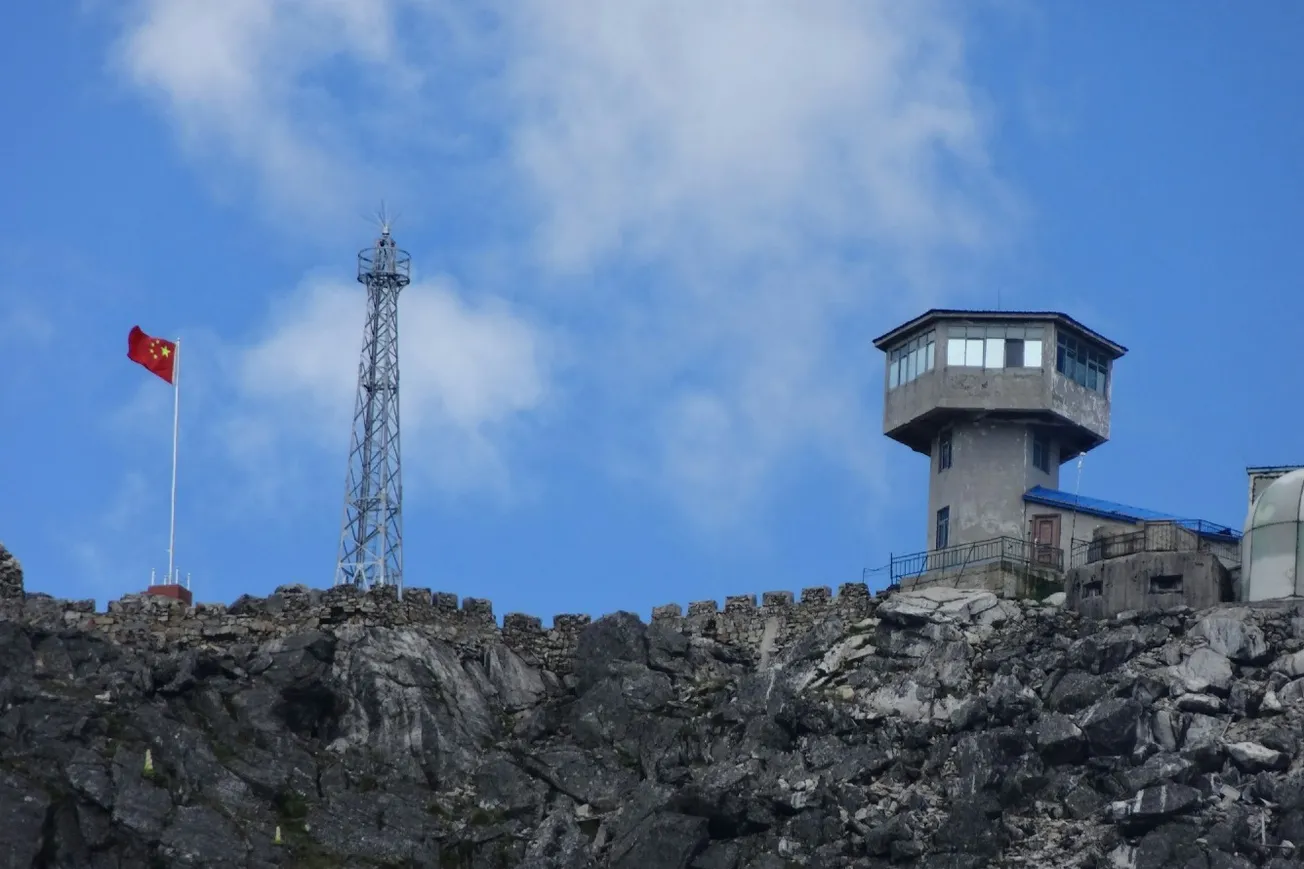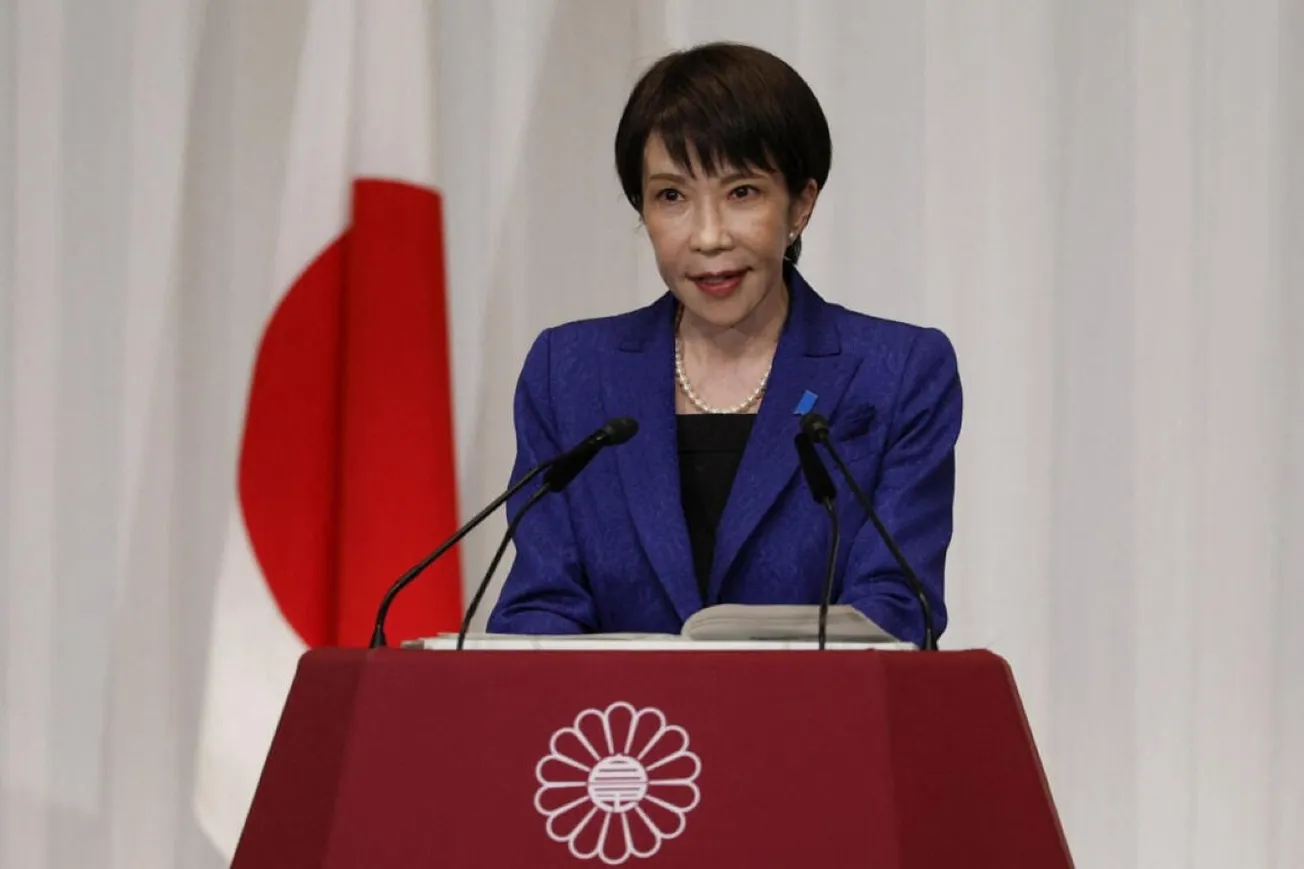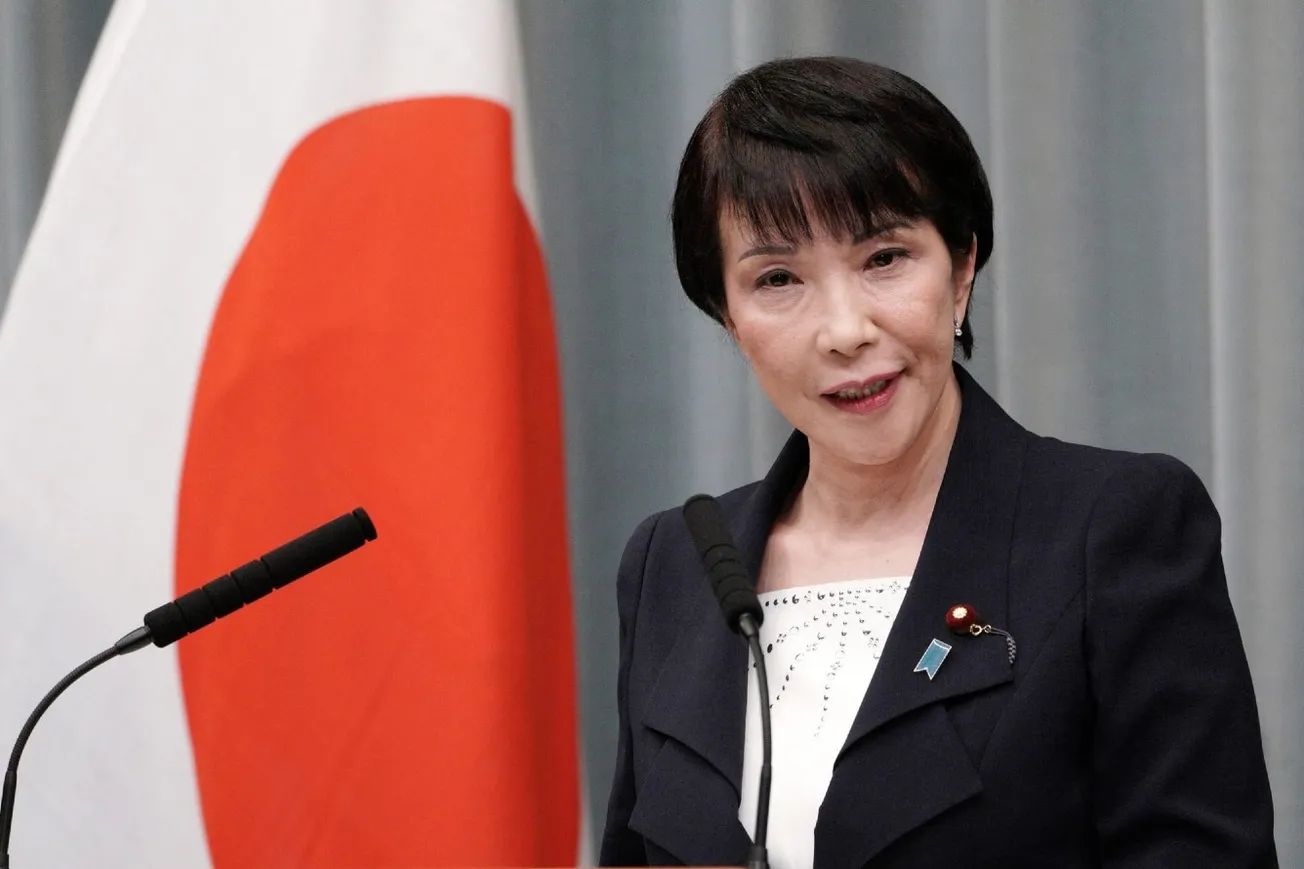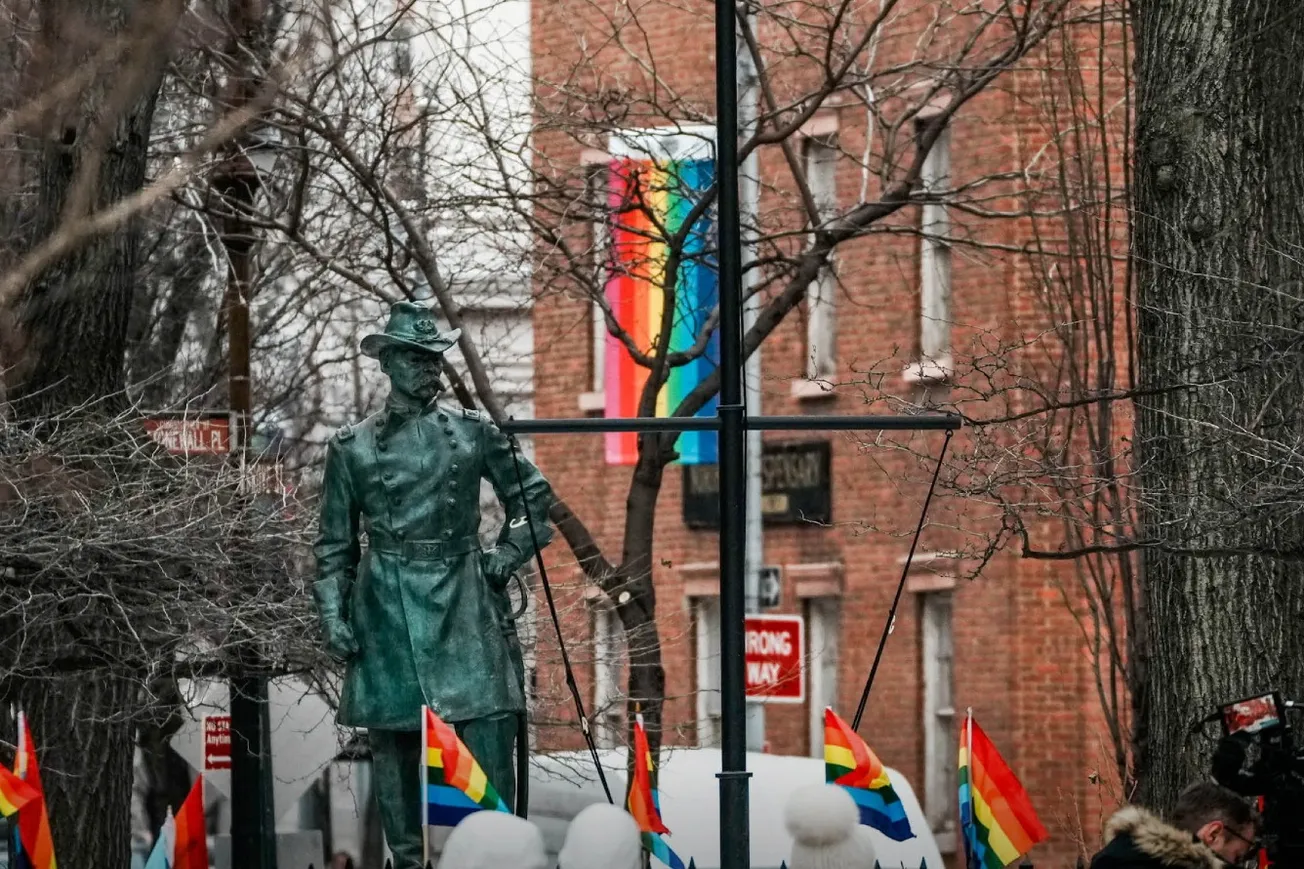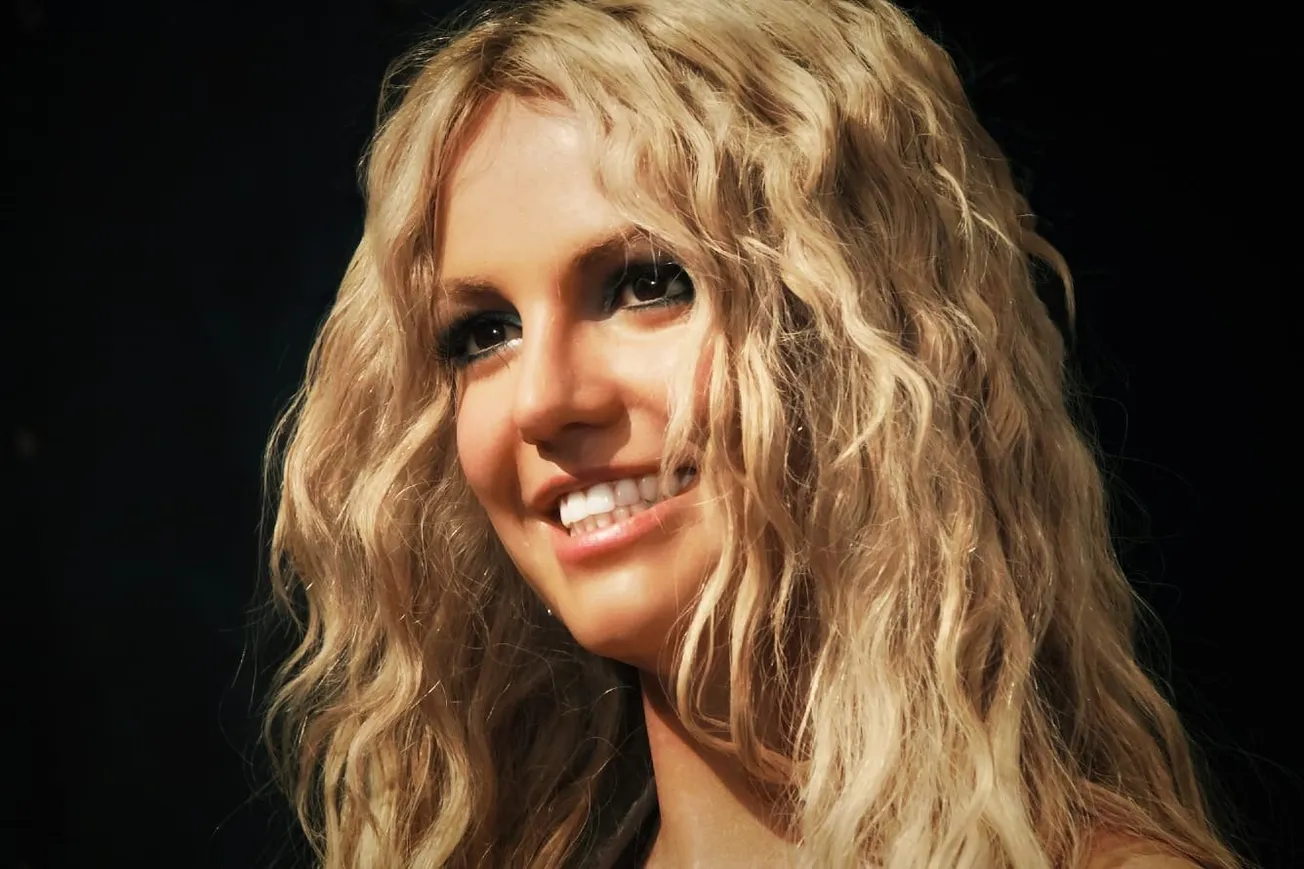Social media platforms were meant to be the Mecca of free speech. It is generally understood that illegal content and violent language do not fall under that gambit. It is also well known that social media companies take measures to limit or censor hate speech and unlawful content.
While monitoring is constant and unavoidable, measures these so-called “free” apps take to suppress and censor content are raising eyebrows. It has become increasingly clear that parent companies define ‘free speech’ to suit narrow agendas, and reports of the extent of such censorship often cause alarm.
Besides, public platforms have become a goldmine of personal information and a veritable source of sensitive data. With data analytics and mining improving by leaps and bounds, users unsuspectingly pass on sensitive personal details and behavioral patterns to autocratic governments.
Bytedance's Watchlist
A report by Forbes at the beginning of the month revealed that ByteDance, the owner of the popular TikTok app, maintains an extensive list that “extend well beyond standard moderation blocklists that typically focus on things like hate speech, child safety, and terrorism” to decide what its users are permitted to see.
While lists of sensitive and undesirable keywords are standard across the board, it was disconcerting to find that ByteDance had on its watchlist content related to U.S.-China trade, former president Trump and around fifty lists with the U.S. in its title.
Beyond the company’s apparent focus on America, issues that nettle Beijing, like drawing attention to the plight of the Uyghurs, the suppression of the Tibet region, support for Taiwan, and criticism of President Xi Jinping, were also “monitored” and “suppressed.”
And herein lies the problem. While it is true that non-Chinese, American-owned social media and internet-based companies like Facebook and Google also analyze user data and impose restrictions on what can/cannot be posted/viewed on their sites, it is rarely, if ever, at the behest of Washington.
Chinese Government Influence
Though TikTok CEO, Shou Zi Chew, testified before Congress saying, “We do not promote or remove content at the request of the Chinese government,” and that “It is our commitment…that we will keep this free from any manipulation by any government” that is not how it works in China. The Chinese government often interferes blatantly in the workings of private enterprises. To function and prosper in China it is necessary to stay in the good books of Bejing.
As the former U.S. head of counterintelligence William Evanina explains, American intelligence agencies do not “work with” social media companies. Access to their database is only possible with the help of a warrant, subpoena, or court order, bringing them under the protection of American courts.
Americans Nervous
Most Americans (60%) believe data privacy is not secure in apps like TikTok, according to a recent Golden/TIPP Poll of 1,414 Americans.
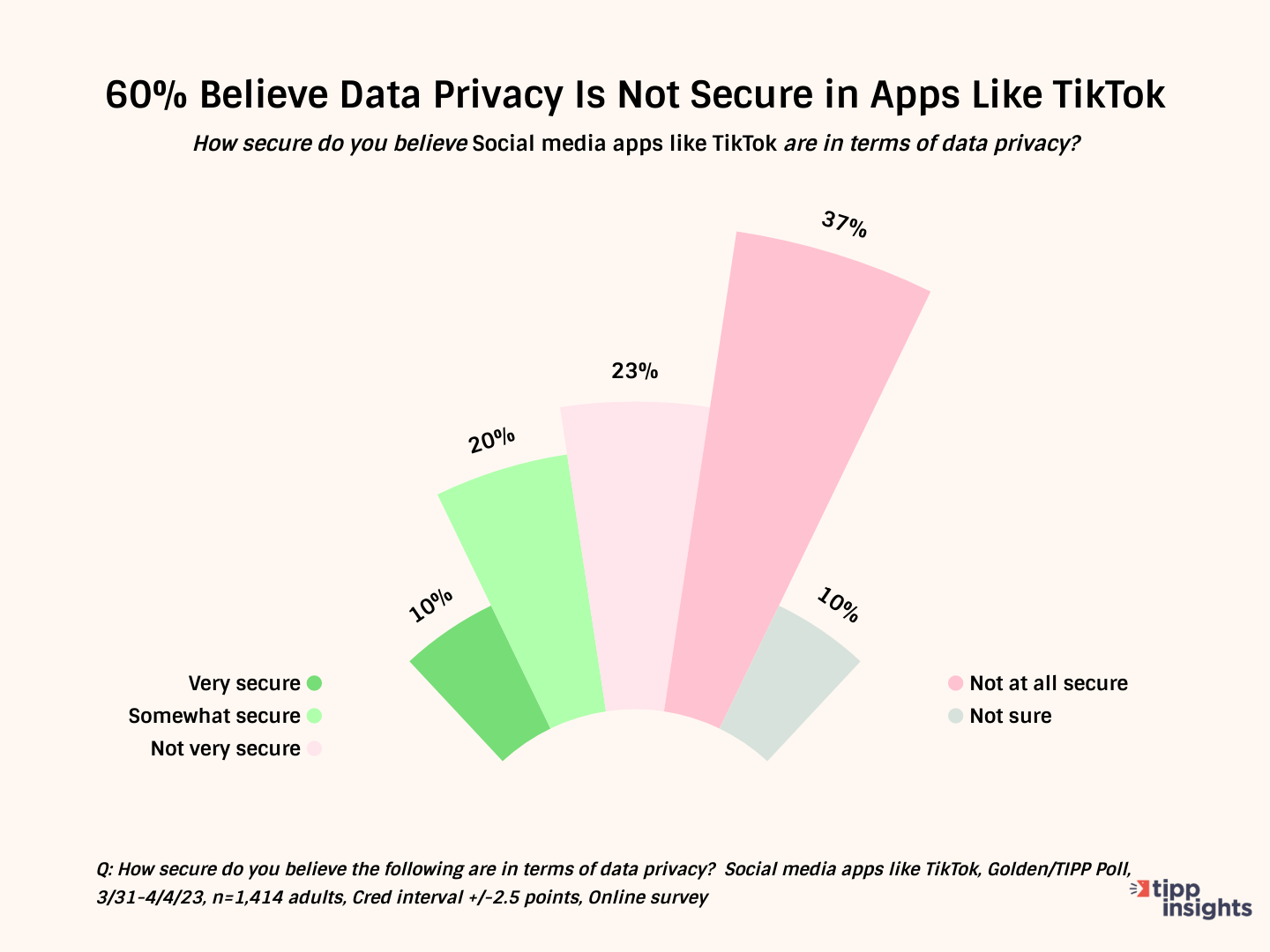
With over 150 million American users, according to TikTok, it is one of the most popular apps today, especially among teens and those in their 20s. The Golden/TIPP Poll also showed that more than half (51%) in the 18-24 age category and close to half (45%) in the 25-44 age group still consider their data to be safe in the hands of TikTok.
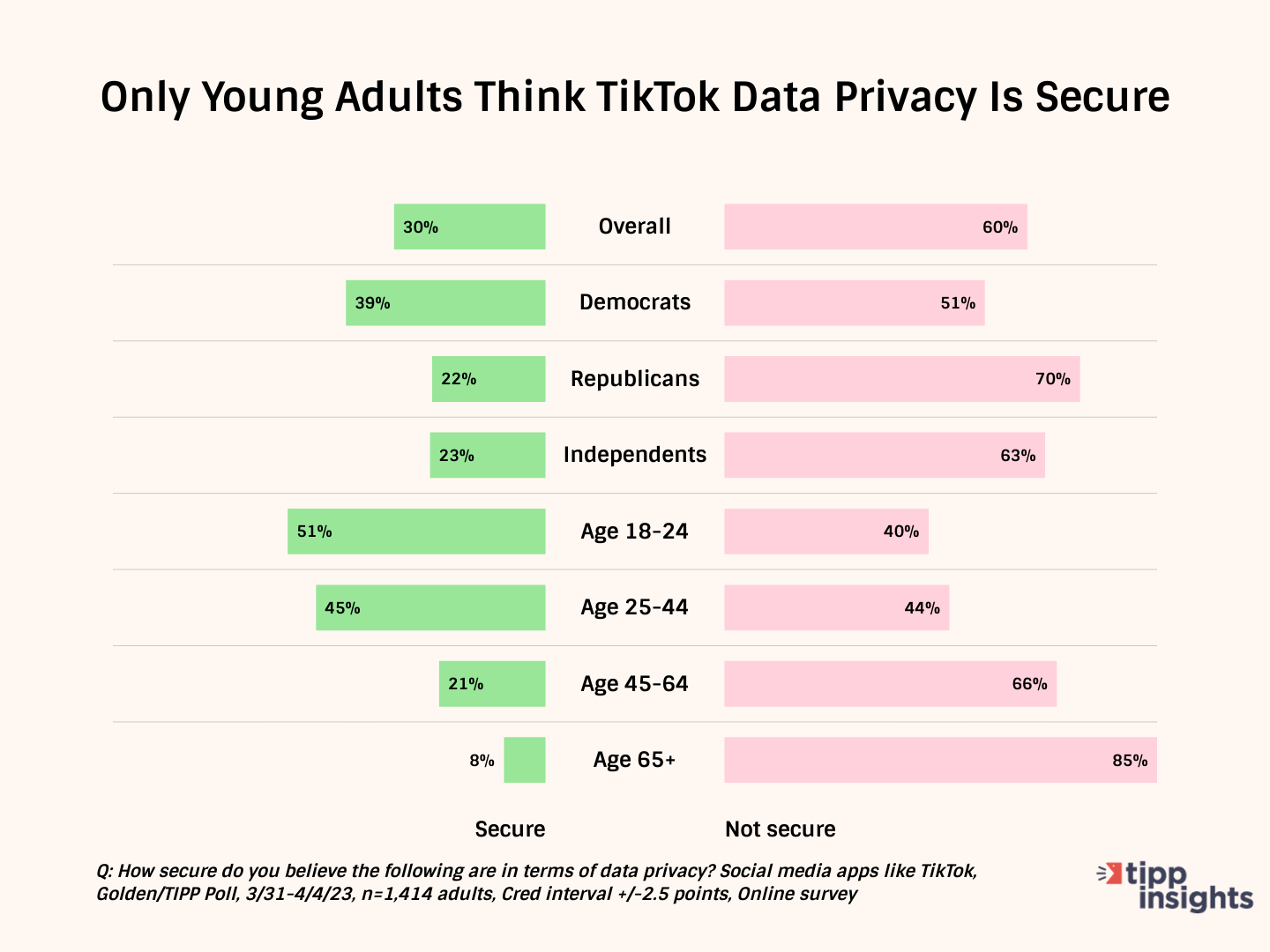
But, persistent media coverage of the threat of the Chinese government having extensive access to user data as made may vary. Notions of data security fall drastically in the higher age groups.
Distrust Spreading To Chinese Devices
Meanwhile, the distrust of Chinese apps is spreading to devices such as phones and semiconductor chips manufactured in the country. In the Golden/TIPP Poll, 54% believe that Chinese-made devices such as phones and semiconductor chips add to the problem.
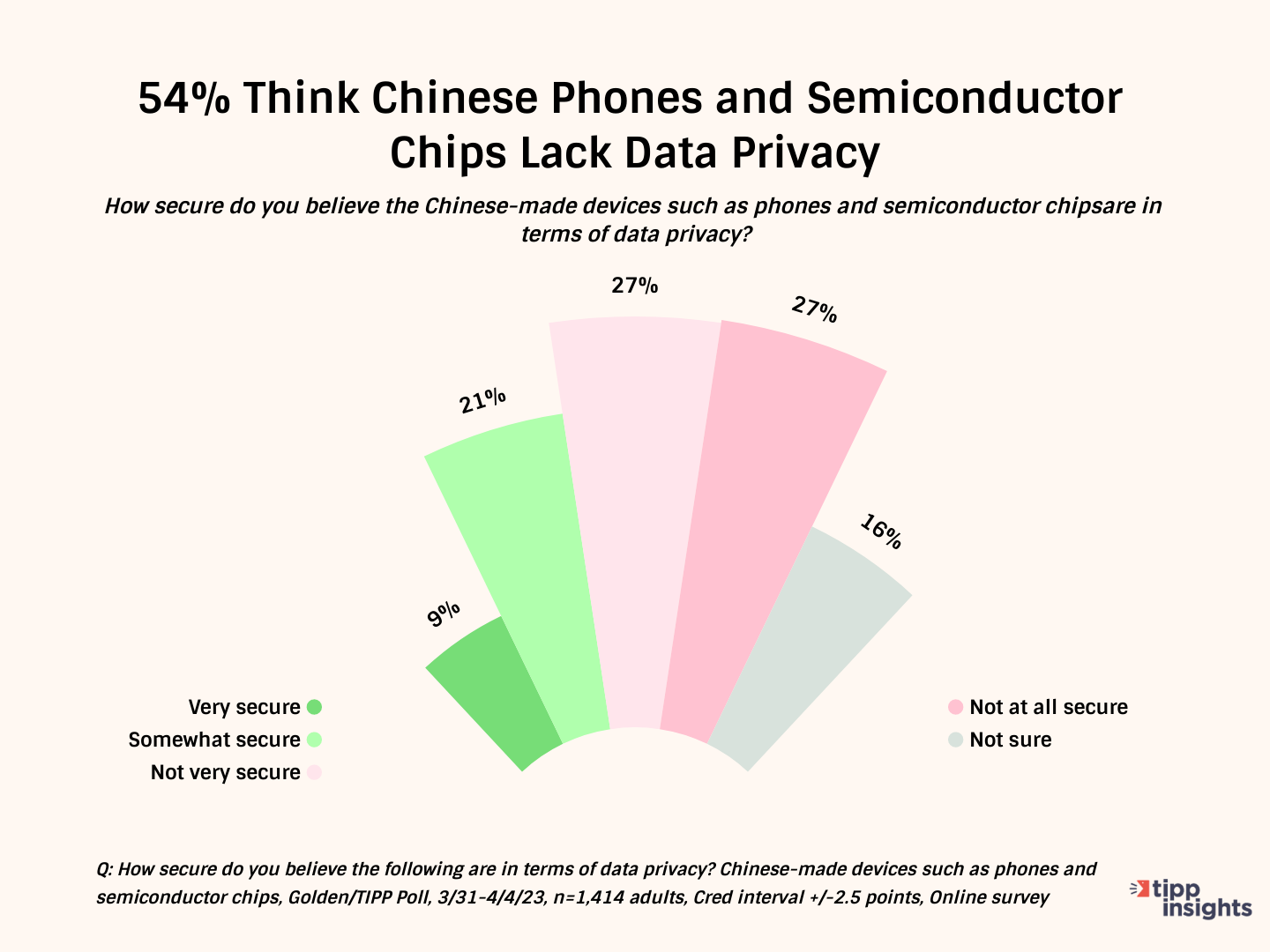
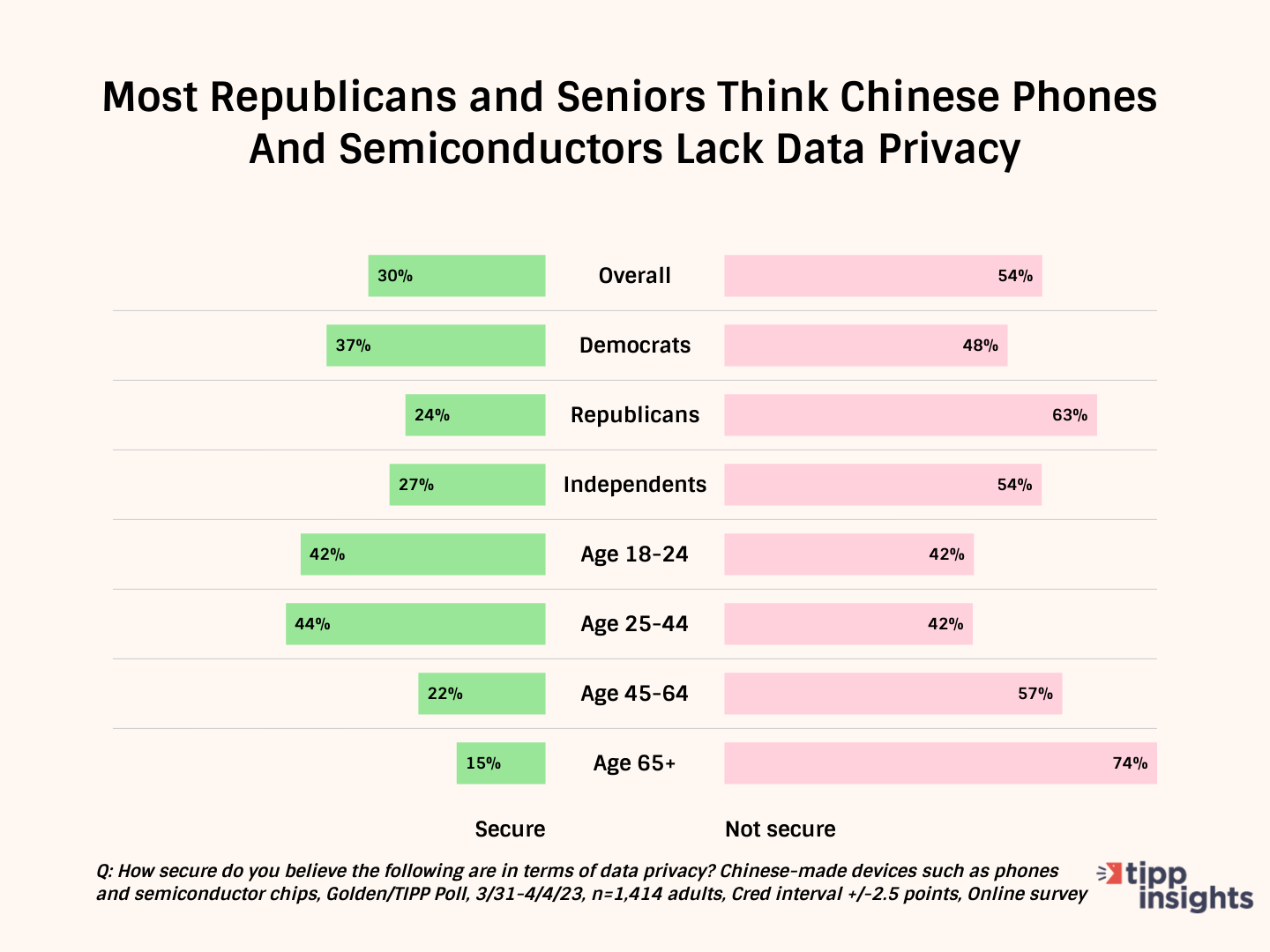
While privacy issues are not unique to Chinese-made apps, the protection of user data is not guaranteed by Beijing. It is well known that Chinese state media has used TikTok in the past in its attempts to influence global politics.
The threat posed by TikTok has been in the news for many months now. It is unlikely that individuals will act in their best interest and voluntarily delete the application. But, now the possibility of the government taking stern measures to protect the privacy and data of its citizens is taking shape. Governor Greg Gianforte of Montana just signed into law a ban on TikTok which will take effect on January 1.
Arguments citing the First Amendment have already surfaced, and TikTok has cried foul. It remains to be seen whether the rest of America will follow or if the video-sharing app driven by millions of Americans will eventually prevail.
Want to dig deeper? Download data from our store and pay what you can afford!
Like our insights? Show your support by becoming a paid subscriber!


